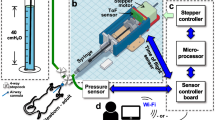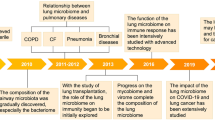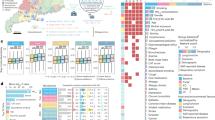Abstract
THE respiratory minute volume of mice can be obtained from Guy ton's1 paper; but this does not tell us how much particulate material is retained in the lungs, a measurement of importance in calculating doses in respiratory infectivity experiments with micro-organisms. Harper and Morton2 found a mean lung retention of 2.7 ml./min when mice weighing 20–22 g were exposed to clouds of single-cell particles of Bacillus globigiispores labelled with phosphorus-32. The exposure method used at thattime was unsatisfactory in that it involved considerable restriction of the mice by neck yokes. Later (1956, unpublished work) a few tests using less restrictive methods indicated a lung retention value of approximately 7.5 ml./min.
This is a preview of subscription content, access via your institution
Access options
Subscribe to this journal
Receive 51 print issues and online access
$199.00 per year
only $3.90 per issue
Buy this article
- Purchase on SpringerLink
- Instant access to full article PDF
Prices may be subject to local taxes which are calculated during checkout
Similar content being viewed by others
References
Guyton, A. C., Amer. J. Physiol., 150, 70 (1947).
Harper, G. J., and Morton, J. D., J. Hyg. (Camb.), 51, 372 (1953).
Henderson, D. W., J. Hyg. (Camb.), 50, 53 (1952).
Author information
Authors and Affiliations
Rights and permissions
About this article
Cite this article
HARPER, G., HOOD, A. Lung Retention in Mice exposed to Airborne Micro-organisms. Nature 196, 598–599 (1962). https://doi.org/10.1038/196598b0
Issue date:
DOI: https://doi.org/10.1038/196598b0



